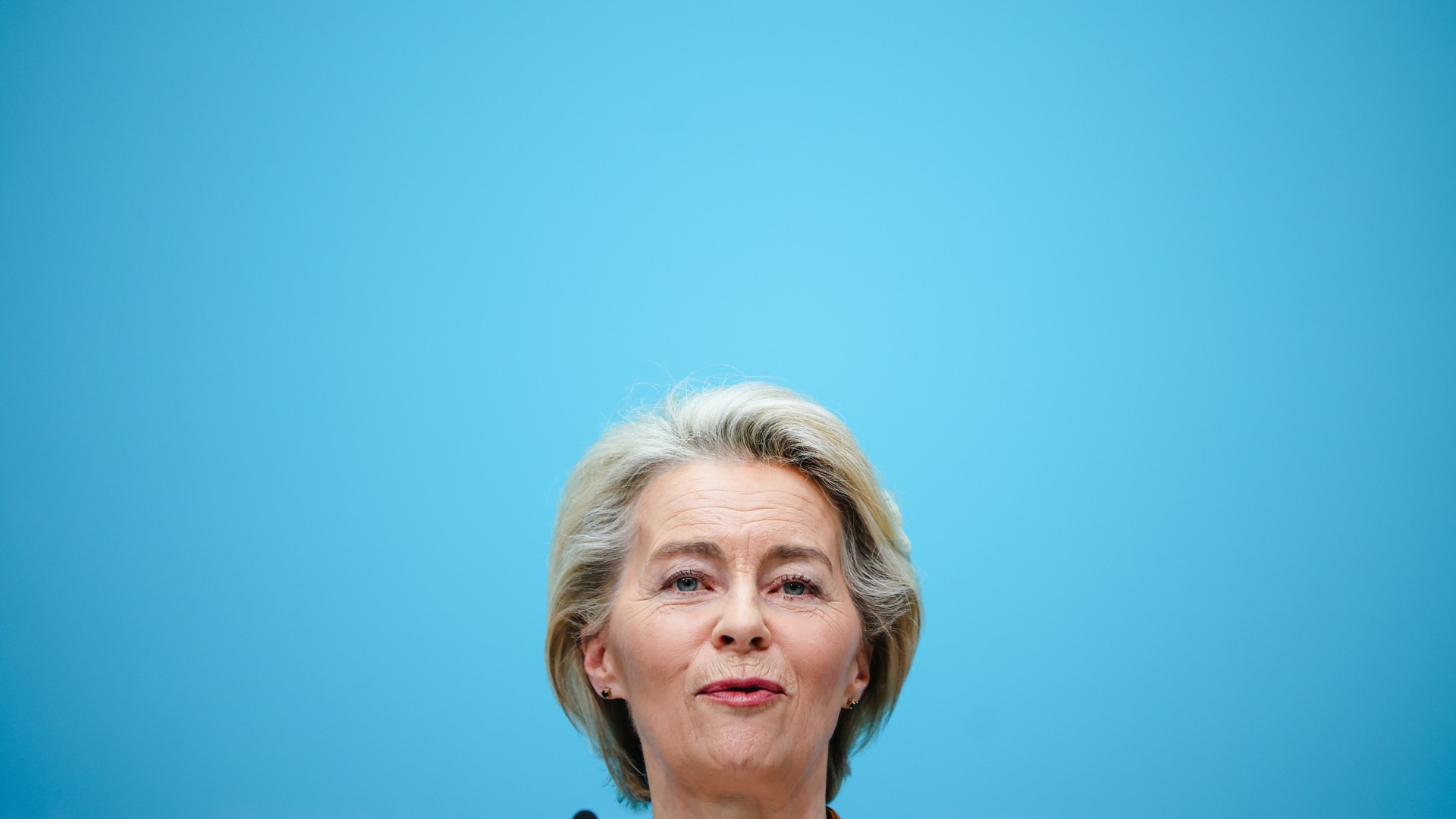What would a second term for Ursula Von der Leyen mean for Europe?
European Commission president faces far-right challenge to green agenda, Russian aggression and a faltering economy

A free daily email with the biggest news stories of the day – and the best features from TheWeek.com
You are now subscribed
Your newsletter sign-up was successful
It was no understatement when Ursula von der Leyen claimed this week that "the world today is completely different to 2019".
In the four years since she became the European Commission's first female president, von der Leyen has faced an unprecedented series of crises, including the Covid pandemic; Russia's invasion of Ukraine; the energy, cost-of-living and migrant crises; the green transition; the rise of China abroad and far-right populism at home; the emergence of AI; and the possible political return of Donald Trump. During this time, she has "shaped the bloc's policies in ways that would have been unimaginable when MEPs elected her in 2019 by a razor-thin margin", said Euronews.
"The old question of Henry Kissinger of who do you phone when you want to phone Europe?" said Nathalie Tocci, director of Rome-based think tank Istituto Affari Internazionali. "I think, at this point in time, it has an answer."
The Week
Escape your echo chamber. Get the facts behind the news, plus analysis from multiple perspectives.

Sign up for The Week's Free Newsletters
From our morning news briefing to a weekly Good News Newsletter, get the best of The Week delivered directly to your inbox.
From our morning news briefing to a weekly Good News Newsletter, get the best of The Week delivered directly to your inbox.
And Uschi, as she is also known, looks set to continue her rule over the EU's executive body, after announcing her intention to stand for a second term. She has won "wide support among Europe's governments for keeping a cool head and for running the European Commission with an iron fist", said The Times's Brussels correspondent Bruno Waterfield.
What did the commentators say?
Her legacy, "built at a frantic pace in times of extreme urgency, will simultaneously serve as an argument in favour and against her re-election", said Euronews.
Popular resistance to her green agenda "overshadowed" her first term, said Waterfield, and her "biggest challenge" now is to preserve her flagship climate change policies in the face of a resurgent far-right and recent Europe-wide protests by farmers. Von der Leyen has "already moved to head off discontent by taking a harder line on migration, scrapping or weakening nature restoration legislation and easing the impact of climate change targets".
"Behold" her "transformation from green dove to military hawk", said Politico, pointing to her desire to appoint a new EU defence commissioner and for countries to join forces on their defence spending. Her key ambition is to make Europe more "competitive" over the next five years. This "catch-all term", said the news site, means "more military might, more Europe First purchases and more industry-friendly climate rules".
A free daily email with the biggest news stories of the day – and the best features from TheWeek.com
Von der Leyen may have "convinced herself of the strength of her record", wrote Matthew Lynn in The Telegraph, but the trouble is she's also been a "disaster for the European economy". Growth in the EU has stuttered along for much of the past decade – in sharp contrast to the US and China – and her "catastrophic mis-management of the Commission is one of the major reasons for that".
Lynn blamed three main factors: a massive increase in borrowing; the launch of the "Green New Deal", which has led to a wave of protests from farmers in recent months; and extra powers for the EU that have "mainly been used to destroy innovation, and micro-manage the bloc's way to economic irrelevance".
What next?
The arithmetic required to secure the support of a majority of MEPs, in a parliament expected to swing significantly to the right after June's European elections, "explains her recent green-deal gymnastics", said the Financial Times. These include ditching a demand for farmers to cut their pesticide use in half and "paring back the environmental bonanza that secured her first term to appease the more populist right".
Von der Leyen has to "walk a tightrope", said Euractiv, "between those who are frustrated with the Green Deal and push for a more 'pragmatic' approach – including her own party – and those who insist that the Green Deal must go on 'with a red heart', such as the EU socialists and the Greens".
Announcing her re-election bid, she acknowledged this new political reality – and the potential election of Trump as US president in November – when she stressed the need to "defend against divisions from within and from outside".
Elliott Goat is a freelance writer at The Week Digital. A winner of The Independent's Wyn Harness Award, he has been a journalist for over a decade with a focus on human rights, disinformation and elections. He is co-founder and director of Brussels-based investigative NGO Unhack Democracy, which works to support electoral integrity across Europe. A Winston Churchill Memorial Trust Fellow focusing on unions and the Future of Work, Elliott is a founding member of the RSA's Good Work Guild and a contributor to the International State Crime Initiative, an interdisciplinary forum for research, reportage and training on state violence and corruption.